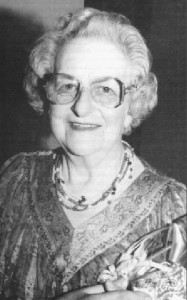Churchill’s Common Touch (1)
Part 1: Mr & Mrs Donkey Jack
A recent book by a distinguished historian suggests that Winston Churchill disdained common people. It cites another Prime Minister, H.H. Asquith, during World War I, providing a tow to a broken-down motorist and giving two children a lift in his car. The writer adds: “It is hard to imagine Winston Churchill behaving in such a fashion.”
It is not hard at all. In fact, Churchill did frequent kind things for ordinary people he encountered, privately and without fanfare. We know about them only through his private correspondence, thanks to the official biography, Martin Gilbert, or the testimony of observers.

A prominent example is the gypsy couple Churchill befriended in Westerham. Grace Hamblin, longtime Churchill secretary and first administrator of Chartwell, recalled them in a 1987 speech to the International Churchill Society:
There was a funny old gypsy living in the district, called Donkey Jack, because he had a donkey and trap, and a wife and a dog. My father, who was a farmer, called him a parasite, because he lived on stolen potatoes, strawberries and apples. But Sir Winston had a more romantic view. He thought it was wonderful. When Donkey Jack died, and his donkey had to be destroyed, there was nowhere for poor Mrs. Donkey Jack to go. It wouldn’t be safe for her to live on common land. Sir Winston allowed her to live in his wood, in a little gazebo which had been there for years, full of earwigs and that sort of thing, but she loved it. It would have been stupid to offer her a house because she wouldn’t have understood it. He knew just what would give her pleasure.
In 1935, Mrs. Donkey Jack suffered a fractured ankle. Churchill sent her to hospital for treatment, but, realizing her camp and her two dogs would be left unattended, asked his gardener Arnold to look after them.
“Should the worst be realized I shall try and get her into a decent home,” Churchill wrote his absent wife. “Meanwhile her savage dog (the little one) still stands a faithful sentry over her belongings. He allows Arnold to bring food at a respectable distance and consents to eat it, but otherwise he remains like the seraph Abdiel in Paradise Lost:
‘Among innumerable false, unmoved;
Unshaken, unseduced, unterrified;
His loyalty he kept, his love, his zeal.’”







4 thoughts on “Churchill’s Common Touch (1)”
There is always a revisionist out there. But I still have to look at the pictures with Churchill standing with his people during the bombing of London and his concern for shelter for the citizens.
That did not happen in Germany when Hamburg was burning.
There are so many examples of Churchill’s deep concern for his people. How dare one critisize the man who saved Europe .
But your response Richard is convincing. Well done.
I look forward to continue to follow this. Thanks for including me.
That’s a valid point and one I will cover in Part 3. Thanks for raising it.
Wonderful anecdote. We know Churchill was wonderful comrade in the field and was a very humane person and a lover of animals.
Is it not true, however, that in social circumstances, Churchill was very aloof to servants?
I met one of FDR’s bodyguards many years ago and he said Churchill was charming to FDR and his circle but ignored guards and servants entirely not even bothering to excuse himself if he bumped into them. By contrast FDR was like everyone’s favorite uncle and he laughed and joked with everyone.
Once again this is a second hand report but I have heard it many times that Churchill for all his virtues and qualities was a man of his age and his class.
Comments are closed.